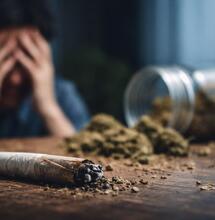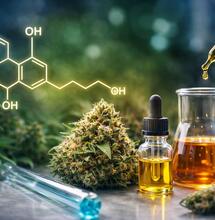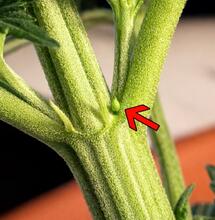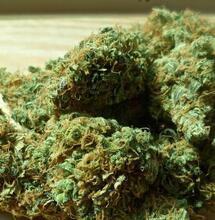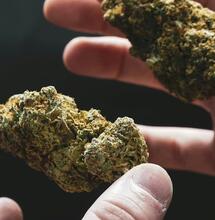Weed Before Bedtime Doesn’t Cause Next Day Impairment
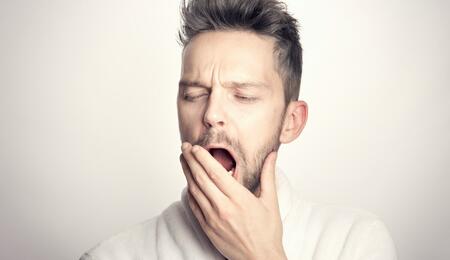
You are not alone if you use cannabis just before bedtime. In fact, millions of people do that. It’s a common way on how cannabis is used. Using cannabis before bedtime provides for a better sleep and can be helpful when you suffer from insomnia. In a new study, Australian researchers dived deep into this topic to find out whether using cannabis before bedtime causes ‘next day’ impairment. Here’s what they’ve found.
There has been a persistent belief that using marijuana before bedtime causes impairment the next day. Well, it might, if you combine weed with alcohol for example. But weed alone? Side effects in the morning would be negligible. A new study that has probed on the subject also says that using marijuana before bedtime is pretty safe.
Marijuana might only have a minimal effect on how you perform the next day. The researchers measured performances on simulated driving, cognitive and psychomotor function tasks, and subjective effects and mood.
The study took data from a larger research on the effects of major cannabinoids on insomnia, and it looked at the outcomes from dozens of patients with doctor-diagnosed insomnia who occasionally used cannabis.
The study results rule out “any conclusions regarding the effects of repeated dosing with THC, with or without CBD, on daytime function in insomnia disorder, which is more representative of how some people use medical cannabis for sleep in the community,” the study authors wrote.
“It is hypothesized that the chances of detecting ‘next day’ impairment are less likely with repeated dosing due to the development of at least partial tolerance to the impairing effects of THC,” the study said.
THC/CBD Combo Does Not Notably Impair ‘Next Day’ Cognitive Function
“The results of this study indicate that a single oral dose of 10mg THC (in combination with 200mg CBD) does not notably impair ‘next day’ cognitive function or driving performance relative to placebo in adults with insomnia who infrequently use marijuana,” underscored the study authors.
They further acknowledged that “the use of cannabis by night as a sleep aid is highly prevalent and there are legitimate concerns that this may lead to impaired daytime (‘next day’) function, particularly on safety sensitive tasks such as driving.”
But the results are here and it all suggests that there were “no differences in ‘next day’ performance in 27 out of 28 tests of cognitive and psychomotor function and simulated driving tests relative to placebo.”
The study participants were randomly given either a cannabis oil solution containing 10 milligrams of THC and 200 mg CBD or placebo. That is a typical dose of THC that people who want to use cannabis as a sleep aid would take.
There were two runs of administering placebo or THC/CBD oil. On the second run, the cannabis oil was given to those participants who received placebo in the first run, and vice versa.
The participants performed cognitive tests two hours after taking the cannabis or the placebo. These tests included tests for attention, working memory, how fast information is processed, and similar domains, and they all showed no ‘next day’ effects of THC/CBD.
The participants also reported on their experience after 30 minutes, 10 hours, 12 hours, 14 hours, 16 hours and 18 hours, answering for example how “stoned,” “sedated,” “alert,” “anxious” or “sleepy” they were.
The differences seen between the THC/CBD and placebo results in 27 of the 28 cognitive performance tasks were insignificant, according to the report.
For example, the researchers observed a slight cognitive interference in the Stroop color and word test, that of a 1.4 percent difference. However, this is so little that it is not deemed “clinically meaningful.” Both groups were above 97% accurate on this particular test.
Driving Performance Not Impacted Either
The study as well assessed the driving performance of the participants 10 hours after THC/CBD use. The results are again encouraging.
“None of the simulated driving outcome measures were significantly different between THC/CBD and placebo,” the study authors wrote. They also noted that this result was consistent with an earlier analysis they’ve done on driving-related skills in occasional cannabis users.
In general, cannabis users recover after about 8 hours after ingesting 10 mg oral THC.
“There were no impairing effects of THC/CBD given by night on simulated driving performance assessed the following morning at ~10 h post-treatment; coinciding with a time that many people might commute on roads (e.g., driving to work in ‘rush-hour’),” the study underlined.
The authors also remarked that the effects of cannabis significantly differ from commonly prescribed sedative-hypnotics such as benzodiazepines (Valium, Xanax) or zopiclone, which are known to produce next-day impairment.
The study was carried out by researchers at Macquarie University in Sydney, the University of Sydney, Royal Prince Alfred Hospital in Sydney, Gold Coast-based Griffith University and Johns Hopkins University. Their group research work was recently published in the journal Psychopharmacology.
Also read on Soft Secrets:
- Which Cannabis Strains Can Help You Improve Sleep?





